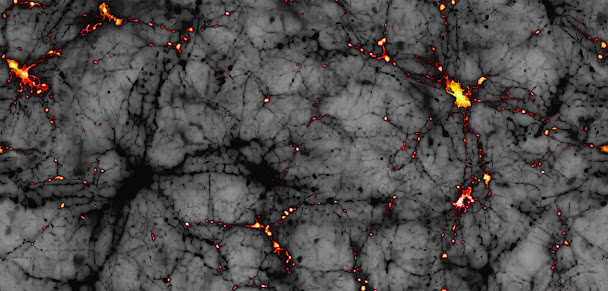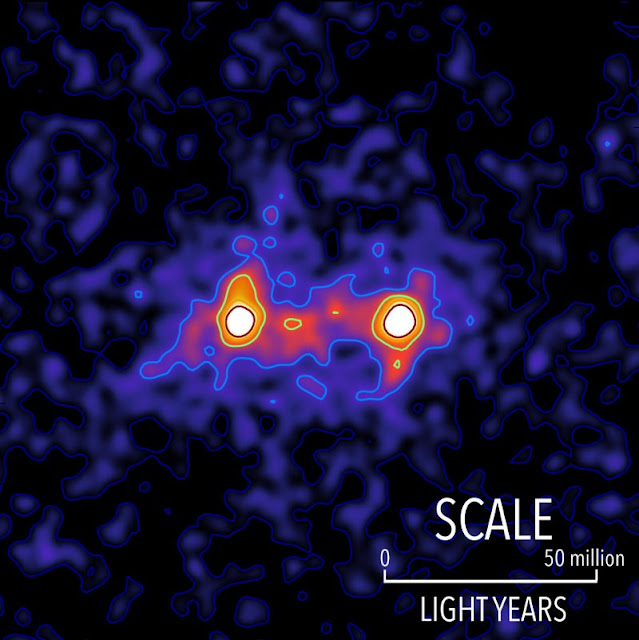The theory that gave rise to the concept of dark
matter arose out of necessity. Our cosmos shouldn't be able to exist and
function as it does base on the stuff we can see - this visible matter
couldn't provide the gravity required to keep our galaxies locked
together.
Dark matter is a theory proposed by scientists to
account for this disparity. They argue that our cosmos must include a kind of
substance we can't see, one that doesn't absorb, reflect, or emit light –
genuinely dark matter.
Dark matter must account for more than a quarter of
all matter in the universe for our scientific theories to be correct. Still,
it's unclear what dark matter is comprised of, and discovering proof of
something that can't be seen is difficult.
Previously, the gravitational effects of dark matter
were the closest thing scientists had to prove, but now researchers from the
University of Waterloo in Ontario, Canada, have something even better: a
composite image that reveals galaxies are actually linked by dark matter.
The researchers used a method known as weak
gravitational lensing to combine photos obtained over a period of years to
demonstrate the existence of dark matter. Images from over 23,000 galaxy
pairings located 4.5 billion light-years distant were used to generate the
composite.
We may not have a better understanding of what this
stuff is made of, but we now have a tangible picture of its presence between
galaxies.
Indeed, the picture is a significant step toward
legitimizing dark matter and dark energy at a time when other scientists
are suggesting ideas that eliminate the requirement for dark matter
completely.
Reference(s): Research Paper,


Comments
Post a Comment